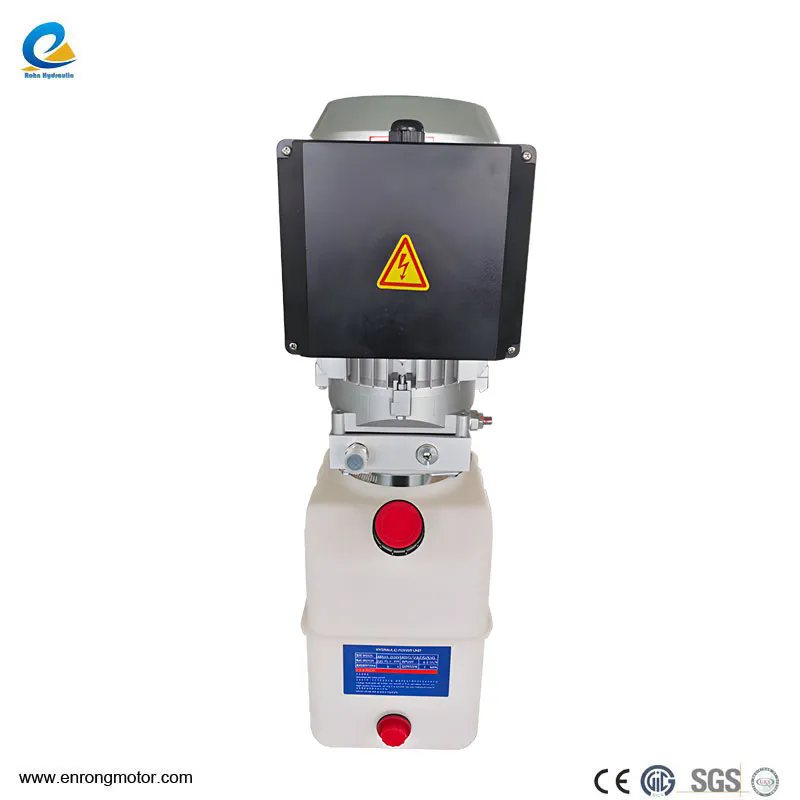Why Are Hydraulic Power Units Crucial for Industrial Applications?
2024-11-14
When it comes to powering machinery and equipment in industrial settings, efficiency, reliability, and control are key. One of the most important components that ensures these factors is the Hydraulic Power Unit (HPU). But why exactly are hydraulic power units so crucial for industrial applications?
In this blog, we’ll dive into what hydraulic power units are, why they’re essential, and how they contribute to the smooth operation of a variety of systems in different industries. Whether you’re in construction, manufacturing, automotive, or energy sectors, understanding the role of HPUs is vital for optimizing performance and ensuring operational success.
What Is a Hydraulic Power Unit?
A Hydraulic Power Unit (HPU) is a system that provides hydraulic energy to power hydraulic machinery. Essentially, it’s the heart of a hydraulic system, converting mechanical energy into hydraulic energy. The unit consists of several key components:
- Hydraulic pump: Converts mechanical energy from an engine or motor into hydraulic energy by moving hydraulic fluid.
- Reservoir: Holds the hydraulic fluid that circulates through the system.
- Motor: Powers the hydraulic pump, typically driven by electric, diesel, or gas motors.
- Valves: Control the flow and pressure of the fluid, directing it to the appropriate parts of the system.
- Filters: Keep the hydraulic fluid clean by removing impurities that can damage components.
- Pressure relief valve: Prevents excess pressure buildup in the system that could lead to equipment failure.
HPUs can range from small, compact units for lighter applications to large, custom-built systems designed to power complex machinery in heavy-duty industries.
Why Are Hydraulic Power Units Essential?
1. Powering Heavy Machinery
One of the primary reasons hydraulic power units are so widely used is their ability to generate high power output for heavy-duty machinery. Hydraulic systems are used to power equipment like cranes, excavators, presses, and lifts, where the force required is far beyond what can be achieved by electric motors alone.
Unlike pneumatic systems that use air, hydraulic systems can deliver more consistent and higher force with precise control over speed and movement, making them indispensable for tasks like lifting heavy loads, bending metal, or lifting and tilting containers. Hydraulic power units provide the force needed to operate these machines efficiently, ensuring that operations are both effective and safe.
2. Energy Efficiency
Hydraulic systems are renowned for their energy efficiency compared to other mechanical systems. Hydraulic power units use pressurized fluids to transmit power, which means they can operate with relatively low energy consumption for the power output they provide. The compact nature of HPUs allows them to perform tasks that would otherwise require larger, less efficient systems.
For instance, in manufacturing or construction applications, the ability of hydraulic power units to efficiently manage power consumption can significantly lower operating costs, reduce wear and tear on equipment, and extend the lifespan of both the power unit and the machinery it operates.
3. Precise Control
One of the standout benefits of hydraulic power units is their precise control over movement. Hydraulic systems allow for highly accurate adjustments in speed, force, and direction, providing the ability to perform delicate or intricate tasks that would be challenging with other power systems.
For example, in the automotive industry, HPUs are used in car lifts to allow for smooth and controlled movement when lifting vehicles. Similarly, in mining or construction, HPUs control heavy equipment like excavators, allowing for precise digging, lifting, and material handling, even in challenging environments.
4. Reliability and Durability
Hydraulic power units are known for their reliability and durability. Since hydraulic fluid is incompressible, it can transmit power effectively over long distances with minimal energy loss. Additionally, hydraulic systems can operate in extreme conditions—whether it's high heat, low temperatures, or heavy-duty environments.
In industries like oil and gas, offshore drilling, or mining, where machinery is subject to harsh conditions, the reliability of hydraulic power units ensures that operations run smoothly and efficiently without frequent breakdowns. Regular maintenance and proper fluid management can keep these systems running for years, minimizing downtime and maintenance costs.
5. Flexibility and Versatility
Hydraulic power units can be used in a wide variety of applications, making them incredibly versatile. Whether in small-scale operations or large, complex systems, HPUs are adaptable and can be customized to suit different types of machinery and equipment.
For example, in manufacturing, hydraulic power units are used in machines like press brakes and injection molding machines. In agriculture, HPUs can be found in equipment such as tractors and harvesters. In offshore drilling, HPUs are used to power drilling rigs and other critical machinery. The versatility of hydraulic power units makes them indispensable across multiple sectors.
6. Reduced Mechanical Wear and Tear
Hydraulic systems are often favored for their smooth operation, especially when compared to other mechanical power systems. Unlike gears or belts, which can cause significant mechanical wear over time, hydraulic systems rely on fluid to transmit force, reducing friction and minimizing wear and tear on parts. This means hydraulic systems are less likely to experience mechanical failure, resulting in less downtime and more efficient operations in the long run.
By using a hydraulic power unit, industries can improve the longevity of their machinery and equipment, reducing the need for costly repairs and replacements.
7. Customization and Scalability
Hydraulic power units are highly customizable and scalable to meet the needs of different applications. Whether it’s a small-scale machine or a massive industrial system, HPUs can be designed to meet specific requirements in terms of power, pressure, and fluid flow rate.
For example, a customized hydraulic power unit can be tailored to operate with specialized equipment in sectors like aerospace, defense, or marine engineering. The scalability of hydraulic systems also allows for easy upgrades or modifications as business needs change.
8. Cost-Effective Solution
Despite the initial investment required, hydraulic power units are a cost-effective solution in the long term. By providing efficient power transmission, reducing wear and tear, and improving productivity, HPUs can help companies reduce maintenance costs, energy consumption, and equipment downtime. Their ability to power large machinery with relatively lower operational costs means that businesses see a high return on investment (ROI) over time.
Conclusion
From precision and power to versatility and durability, hydraulic power units play a pivotal role in the success of a wide range of industries. They offer reliable and efficient power transmission, making them essential for operating heavy machinery, achieving precise control, and ensuring the longevity of equipment.
Whether you’re in the automotive, construction, mining, manufacturing, or oil and gas industries, understanding the importance of hydraulic power units is key to optimizing your operations. These powerful systems enable businesses to operate more efficiently, reduce costs, and improve overall productivity.
So, the question remains: Why are hydraulic power units so essential? The answer is clear—they provide the power, precision, and reliability needed for industrial success. If you’re not already using an HPU, it might be time to consider adding one to your operations!



